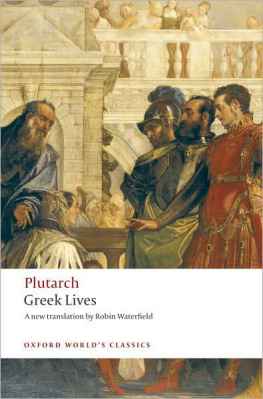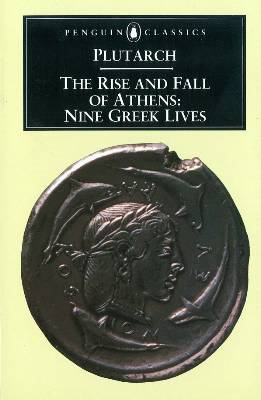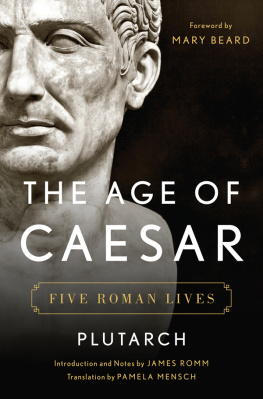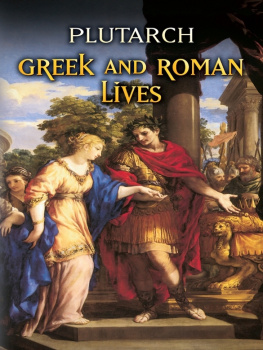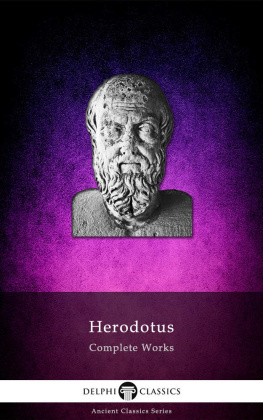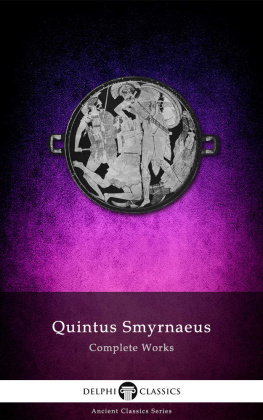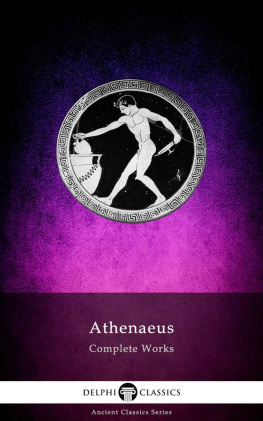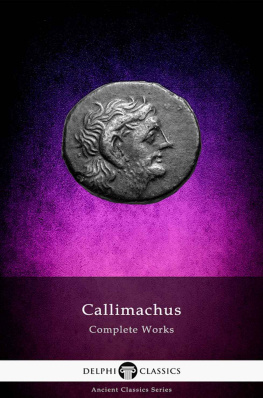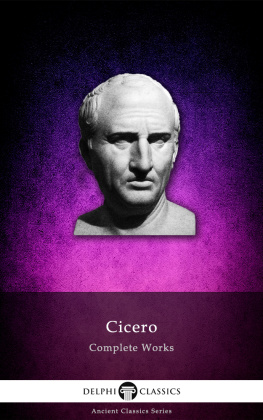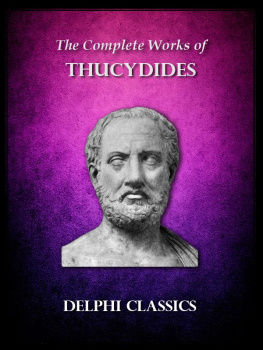The Complete Works of
PLUTARCH
(46120AD)
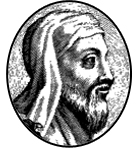
Contents

Delphi Classics 2013
Version 1
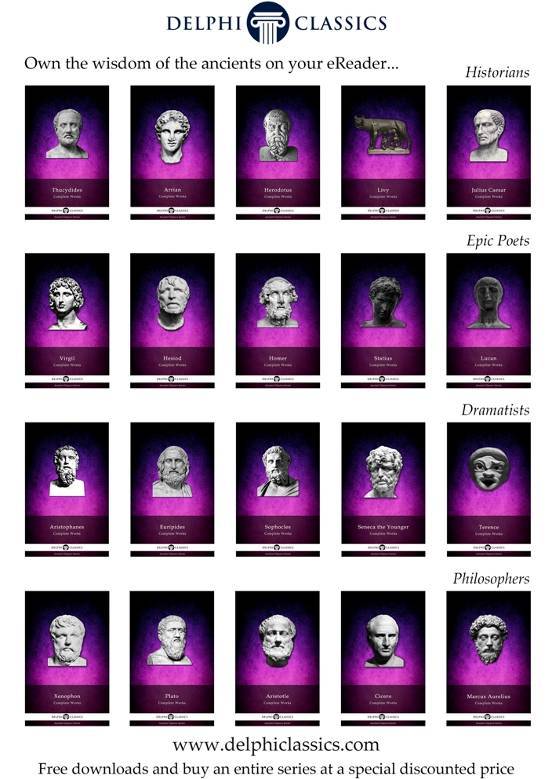
The Complete Works of
PLUTARCH

By Delphi Classics, 2013
COPYRIGHT
Complete Works of Plutarch
First published in the United Kingdom in 2013 by Delphi Classics.
Delphi Classics, 2013.
All rights reserved. No part of this publication may be reproduced, stored in a retrieval system, or transmitted, in any form or by any means, without the prior permission in writing of the publisher, nor be otherwise circulated in any form other than that in which it is published.
Delphi Classics
is an imprint of
Delphi Publishing Ltd
Hastings, East Sussex
United Kingdom
Contact: sales@delphiclassics.com
www.delphiclassics.com
The Translations
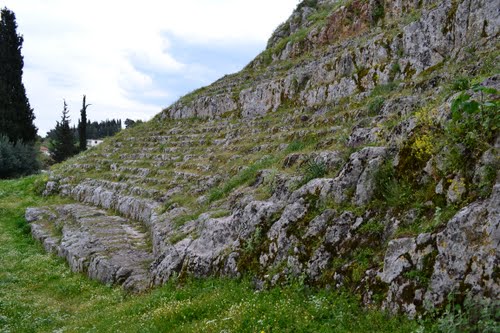
Ruins of Ancient Chaeronea Plutarchs birthplace. The author was born to a prominent family in Chaeronea, Boeotia, twenty miles east of Delphi.
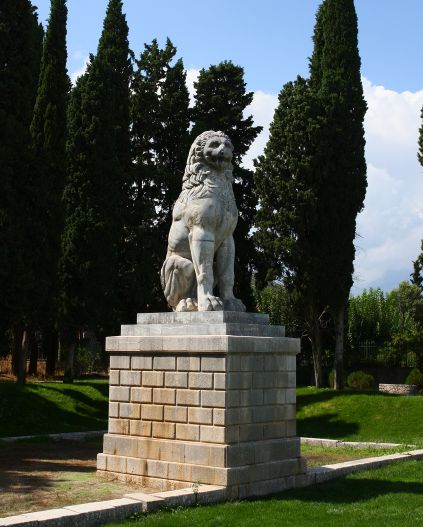
Chaeronea was the site of a famous battle in 338 BC, between Philip II of Macedon and a coalition of various South Greek states, mainly Thebes and Athens. During the battle, the elite unit of Theban soldiers known as the Sacred Band of Thebes was wiped out completely This fragmentary monument of a lion commemorates the battle and was referred to by Plutarch in his writings.
PARALLEL LIVES

Translated by Bernadotte Perrin
This famous collection of lives contains twenty-three pairs of biographies, each consisting of a Greek and a Roman biography on a leading historical figure, usually followed by a comparison, drawing conclusions to the grand achievements, moral virtues or failings of the persons discussed. One of the most popular texts of antiquity, sharing a privileged best-selling reputation as early as the Roman times, Plutarchs Parallel Lives is a work of considerable importance, not only as a source of information about the subjects of the biographies, but also about the life and times of the Classical world.
Parallel Lives was published by Plutarch late in life after his return to Chaeronea and they appear to be the result of many years of compilation and study. Plutarch explains in the first paragraph of the Life of Alexander that he is not concerned with writing histories, but in exploring the influence of characters on the lives and destinies of famous men. The author strives to prove that the more remote past of Greece boasts men of action and achievement that can vie with the more recent heroes of Romes past.
The chief surviving manuscripts date from the 10th and 11th centuries, with the true first edition appearing in Florence in 1517. The first pair of lives, the EpaminondasScipio Africanus, no longer exists, and many of the remaining lives are truncated, with obvious lacunae or sections that have been altered by later writers. Of principal importance is the Life of Alexander , one of the five surviving secondary or tertiary sources about Alexander the Great, which includes anecdotes and descriptions of incidents that appear in no other source. Likewise, the biography of Numa Pompilius, an early Roman king, also contains unique information found nowhere else in ancient texts.
Plutarch has been criticised for his lack of judicious discrimination in the use of authorities and the consequent errors and inaccuracies in his text, but he salvages many quotations from lost works, whilst incidentally providing a large amount of valuable contextual information, filling up numerous gaps in historical knowledge found elsewhere. Since antiquity, Plutarch has been celebrated for the concise and lively style of his writing, conveying a sense of warmth in his portrayals and the moral earnestness and enthusiasm with which he analyses some the most important events and personages of the ancient world.
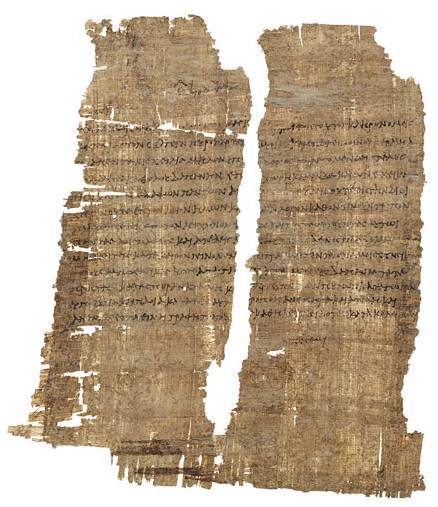
A papyrus fragment of Plutarchs Parallel Lives
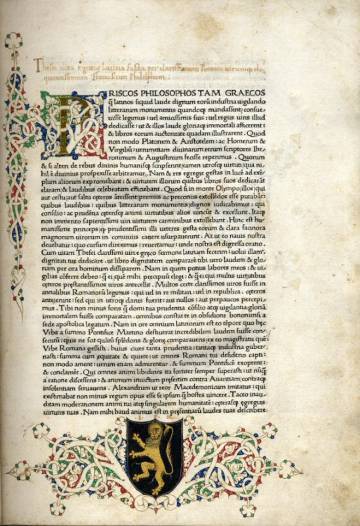
The 1470 Ulrich Han printing of the Parallel Lives.
CONTENTS
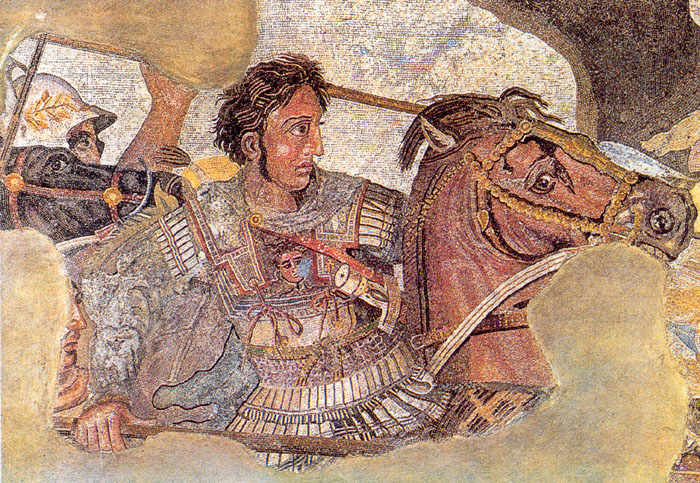
Alexander the Great fighting the Persian king Darius III. The biography on Alexander is one of the most important works to be found in Plutarchs oeuvre.
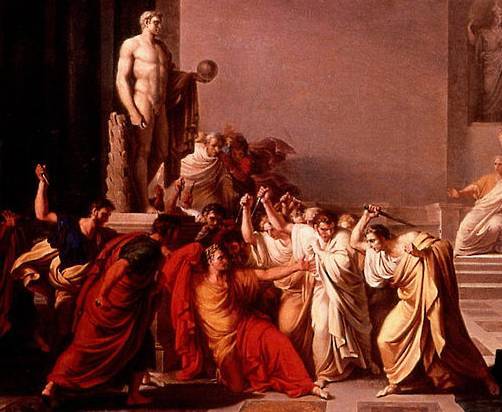
The Assassination of Julius Caesar. Each biography on a Greek historical figure is followed by a biography on a similar Roman figure, providing the parallel nature of the work. Therefore, the obvious counterpart to the Greek Alexander is the Roman Julius Caesar.
Theseus

Just as geographers, O Sossius Senecio, crowd on to the outer edges of their maps the parts of the earth which elude their knowledge, with explanatory notes that What lies beyond is sandy desert without water and full of wild beasts, or blind marsh, or Scythian cold, or frozen sea, so in the writing of my Parallel Lives, now that I have traversed those periods of time which are accessible to probable reasoning and which afford basis for a history dealing with facts, I might well say of the earlier periods: What lies beyond is full of marvels and unreality, a land of poets and fabulists, of doubt and obscurity. But after publishing my account of Lycurgus the lawgiver and Numa the king, I thought I might not unreasonably go back still farther to Romulus, now that my history had brought me near his times. And as I asked myself,
With such a warrior (as Aeschylus says) who will dare to fight?
Whom shall I set against him? Who is competent?
it seemed to me that I must make the founder of lovely and famous Athens the counterpart and parallel to the father of invincible and glorious Rome. May I therefore succeed in purifying Fable, making her submit to reason and take on the semblance of History. But where she obstinately disdains to make herself credible, and refuses to admit any element of probability, I shall pray for kindly readers, and such as receive with indulgence the tales of antiquity.
2 1 It seemed to me, then, that many resemblances made Theseus a fit parallel to Romulus. For both were of uncertain and obscure parentage, and got the reputation of descent from gods;
Next page


